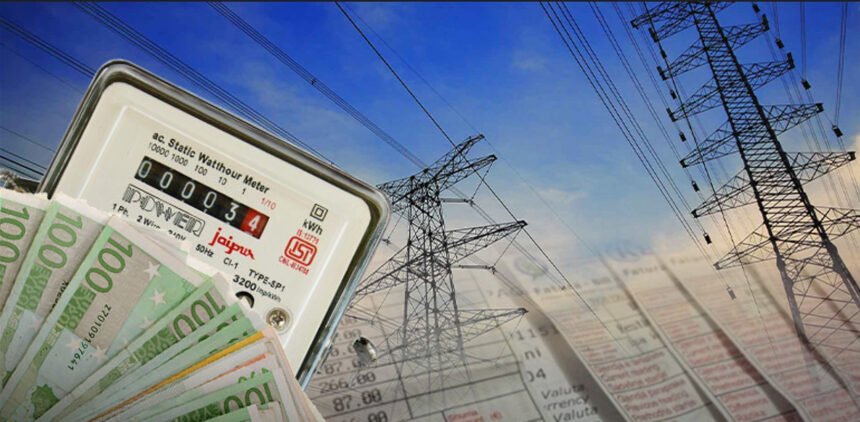Some businesses in Kosovo have signed supply contracts for electricity, while others refuse to comply, and there are even cases where companies have split into two separate entities to avoid entering the open energy market.
Starting July 31, all businesses in Kosovo with more than 50 employees or an annual turnover exceeding €10 million that have not signed a contract with a licensed electricity supplier will be disconnected from the grid.
The warning comes from the Energy Regulatory Office (ZRRE), which emphasizes that the 60-day temporary supply period will end on July 30.
KEK Acting as Supplier of Last Resort
Currently, large private companies are supplied by the Kosovo Energy Corporation (KEK), which is acting as the Supplier of Last Resort (SLR). This supply is temporary, limited to 60 days, and comes with higher-than-average market prices.
Once the period expires, KEK no longer has the legal right to supply these companies.
“This obligation comes from the law, and the Energy Regulatory Office cannot extend or change this deadline. Therefore, as of July 31, all consumers without a supplier will be cut off from the electricity grid,” ZRRE told Radio Free Europe.
The 60-day period started on June 1, when ZRRE’s decision to liberalize the energy market came into force.
Obligation to Enter the Open Market
According to the decision, all private and public companies with over 50 employees or annual turnover above €10 million must enter the open electricity market by choosing their own licensed supplier. This means they will pay market-driven prices determined by supply and demand.
So far, over 1,300 companies with more than 9,367 metering points have entered the open market. A single company may have more than one metering point.
ZRRE says there are currently 2,198 metering points covered by licensed commercial suppliers, while 7,169 points are still supplied by KEK as the SLR, meaning they must sign new contracts by Thursday to avoid disconnection.
Call for Immediate Action
ZRRE and KEK have called on all businesses to immediately contact licensed suppliers and sign new supply contracts to avoid power interruptions.
Kosovo has 22 licensed companies for electricity supply, with three more in the process of licensing.
One of them is KESCO, which supplies the majority of household and industrial customers.
So far, around 100 businesses have signed contracts with KESCO, and ten more are in the process of signing.
“Interest remains very high, especially in the last few days, considering KESCO’s extensive experience in electricity supply and trading in Kosovo,” the company said in a statement. It added that it is working at increased capacity to meet all requests before the July 30 deadline.
Businesses Under Pressure
One of the businesses waiting to sign a contract is Pestova from Vushtrri. Its owner, Bedri Kosumi, whose company has 260 employees, said he is forced to sign with KESCO because other licensed suppliers have not presented any offers.
“I have no other choice. They are forcing me to sign a contract because if the electricity is cut, production is at risk. I still don’t have details about the energy prices, but the priority is not to lose power,” Kosumi said.
Meanwhile, one production company that recently had around 90 employees found a loophole to evade the open market by splitting into two legal entities, each with fewer than 50 employees.
Concerns About High Prices
The owner of Enerco LLC, Rinor Klaiqi, confirmed that they have started signing contracts with businesses but did not reveal numbers or prices, saying only that supply is secured via the Albanian Power Exchange (ALPEX).
“It’s a stressful situation for businesses because everyone left the negotiations and signing for the last days, hoping something would change,” Klaiqi said.
Business representatives have consistently opposed this process, arguing that market prices are significantly higher.
The President of the Kosovo Chamber of Commerce, Lulzim Rafuna, has reiterated demands to postpone the liberalization until February 1, 2026, arguing that the delay would allow time to develop competitive trading companies and for businesses to invest in alternative energy.
“It’s not enough to force businesses into the free market and leave them at the mercy of a single bidder like KESCO. Other licensed companies haven’t provided concrete offers yet,” Rafuna said.
If there is no postponement, he warns that producers will suffer serious losses, reducing export value.
However, ZRRE insists there is no legal basis for extending the supply from the Supplier of Last Resort beyond the 60-day limit.
Kosovo’s market liberalization was foreseen in the 2016 Law on Electricity, but its implementation was delayed due to various factors.
In the European Union, energy market liberalization began in the late 1990s to boost competition, efficiency, security, and consumer choice.
In the Western Balkans, the process remains in progress.







